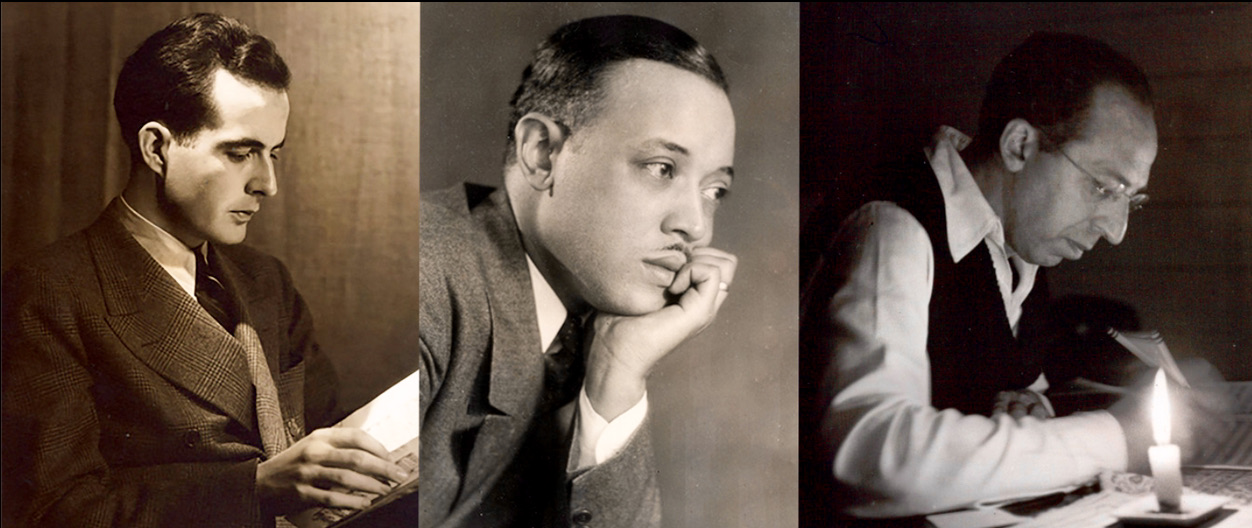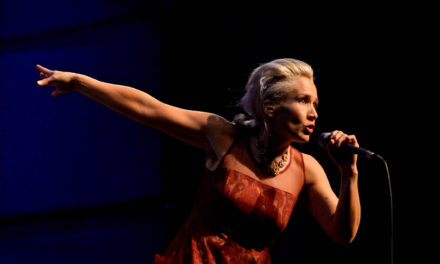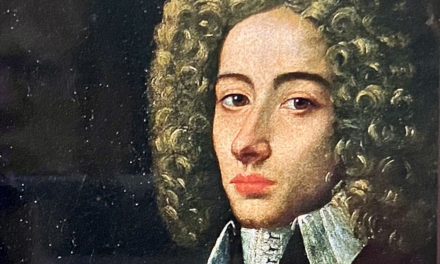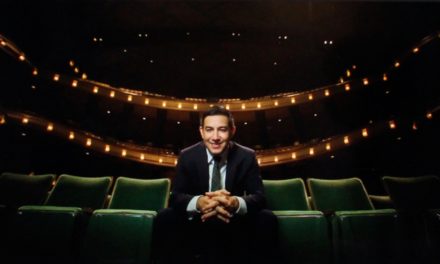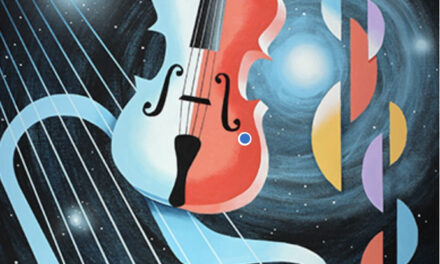(Above: Left to right, composers Samuel Barber, William Grant Still, and Aaron Copland.)
By Daniel Buckwalter
The sweet and warm glow of classical chamber music is always the perfect balm for those blustery days and frigid nights.
Such was the case on March 2 and 3 at The Shedd Institute when microphilharmonic celebrated the legacies of three American composers — Samuel Barber, William Grant Still and Aaron Copland — before appreciative audiences.
Trust me, between snow flurries, icy rain and brutally cold nights, American Masters was the ideal escape for 90 minutes.
The program opened with Barber’s String Quartet in B Minor and its solemn and majestic (as well as iconic) second movement. A quartet that featured violinists Alice Blankenship and Stephen Redfield, violist Bryce Caster and cellist Eric Alterman gave the second movement the feeling of spiritual ascension that has always fascinated me.
I confess that I had not known much about Still, and that is something I aim to correct.
The “Dean of African American Composers,” Still was born in Mississippi in 1895 and lived to be 83 years old. He composed close to 200 works, from symphonies to ballets and operas as well as choral works, solo works and chamber pieces.
For the American Masters concert, microphilharmonic chose a 1960 composition of Still’s — Lyric Quartet — played by the same foursome that played Barber’s piece.
The piece examines three of Still’s friends in its three movements (“The Sentimental One,” “The Quiet One” and “The Jovial One”), and each movement perfectly illustrates its title, be it melodic, peaceful or radiant.
For Copland, microphilharmonic expanded to 13 members because, well, Appalachian Spring demands it.
The eight-movement ballet masterpiece, composed in 1944 for esteemed choreographer Martha Graham, still resonates. It still can carry listeners through the Appalachian region to its stirring seventh movement, Moment of Crisis, which is a set of variations from the Shaker melody Simple Gifts, and ends with a soulful eighth movement, The Lord’s Day.
And it was a reminder that these rugged weather days and nights will come to a close, and for that gentle nudge, I am grateful to microphilharmonic and the American Masters program.

